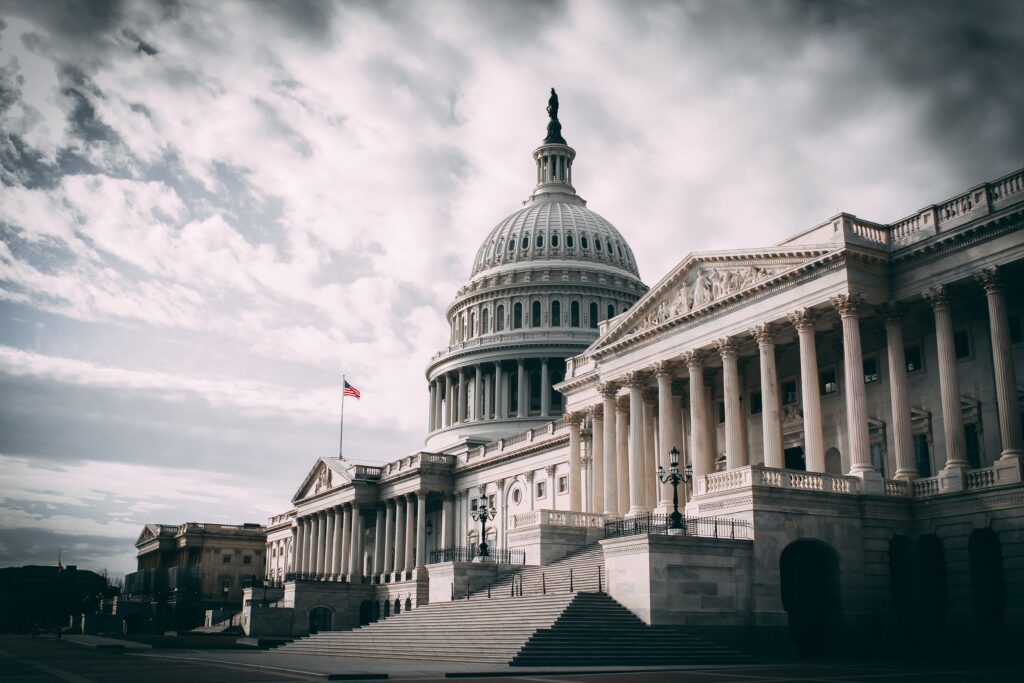
If we’re to give a voice to science and society, we mustn’t forget the role of lawmakers – and the communication lessons they can provide. I’ve blogged a lot about science policy and how to get involved at the Fancy Comma blog. I’ve talked about being a scientist in politics, ways scientists can get involved in science policy, and more. Check out all our science policy posts geared toward scientists seeking to get involved in the policy world.
We often talk about explaining science to people that don’t understand it. In our minds, we envision this dialogue being between members of the general public – in other words, everyday people – and scientists. Of course, there are other stakeholders that need to understand science that do not.
Policymakers are a huge part of science because they set federal science funding priorities. However, most members of Congress or state or local lawmakers are not scientists. According to a report from the Congressional Research Service, the majority are politicians, business leaders, lawyers, and educators. There are a handful of scientists in Congress, too, but by and large, nonscientist lawmakers fund science – setting budgets for national science agencies such as the National Science Foundation and National Institutes of Health.
Working in Congress as an intern and adjacent to Congress as a SciComm strategist, I’ve learned that the way you say something matters. if you have a message that is very difficult to understand, it will not make an impact. It won’t resonate with people. You have to make the message relevant for people, rather than trying to capture their attention with facts. As a scientist, facts and data are your jam…but make your message too complicated and you risk losing the interest and even trust of your audience (especially if they get confused or misunderstand you).
That’s why effective science communication is absolutely essential to sound science policy. We face many challenges in the 21st century – beyond COVID-19, things like climate policy, domestic high-tech manufacturing amidst an ongoing war that has shifted global alliances, the everpresent nuclear threat, and more. Science lies at the heart of all of these subjects, and if we are to produce good policy on these and other issues, science – communicated skillfully – must have a place at the table. What’s more, we must work to be compassionate and inclusive, and that includes people from all political walks of life. After all, science isn’t Democrat or Republican – so perhaps it’s no surprise that science enjoys bipartisan support in Congress.
It’s true – scientists must be able to communicate effectively to anyone. That’s whether they’re chatting with friends and family at Christmas dinner, or talking to lawmakers or the general public. This all starts with training scientists at the undergraduate and graduate level on foundations of SciComm. I have a lot of thoughts on this – why isn’t there an established nationwide SciComm curriculum in the US, for example? – but my main wish for scientists is to realize the unrealized potential of SciComm to improve science in so many ways. Science is a conversation with society, and if society doesn’t understand it, science isn’t likely to help as much. This is where I believe we can learn from policymakers, as much as I have heard my fellow scientists malign them at lab meetings…
Though I’m a trained neuroscientist, I’ve been working in the political world since high school, going door to door for local candidates. Most recently, in the 2022 midterm elections, I worked on digital strategy and phone banking for two winning Senate campaigns. The most important thing I’ve learned from working in politics is that grassroots strategies are what work. When you listen to people, take time to understand their frustrations, and seek to inform them about important issues at their level of understanding of the facts and with empathy, that can be very impactful.
I see the role of science communication and science policy as twofold. First, lawmakers need to understand science to write good policy. Second, as science communicators, we can apply communications and messaging lessons from politics to our own work. We all know about the 24/7 slog of campaign life, when politicians work tirelessly, going from city to city, talking to people, and making stump speeches with simple messages meant to uplift, unify, and inspire. What if we took that approach to science communication?
Doing so would mean that we would have to put aside our elevated, white-collar, sometimes elitist status as scientists. We would have to really get out there, and listen to people, regardless of their political views. Yes, that means even listening to people whose views we don’t agree with. Finding common ground. Listening with empathy, we’d then learn from people as much as we educate them.
What would that look like? How would that have changed the COVID-19 pandemic? That’s the question I endeavor to ask people this year at my Science Talk virtual session. I believe that, by learning from policymakers when it comes to communication, we can both improve science-policymaker relationships, ensuring federal support for important, life-saving science research for years to come – and also help the whole world better understand science.



Leave a Reply